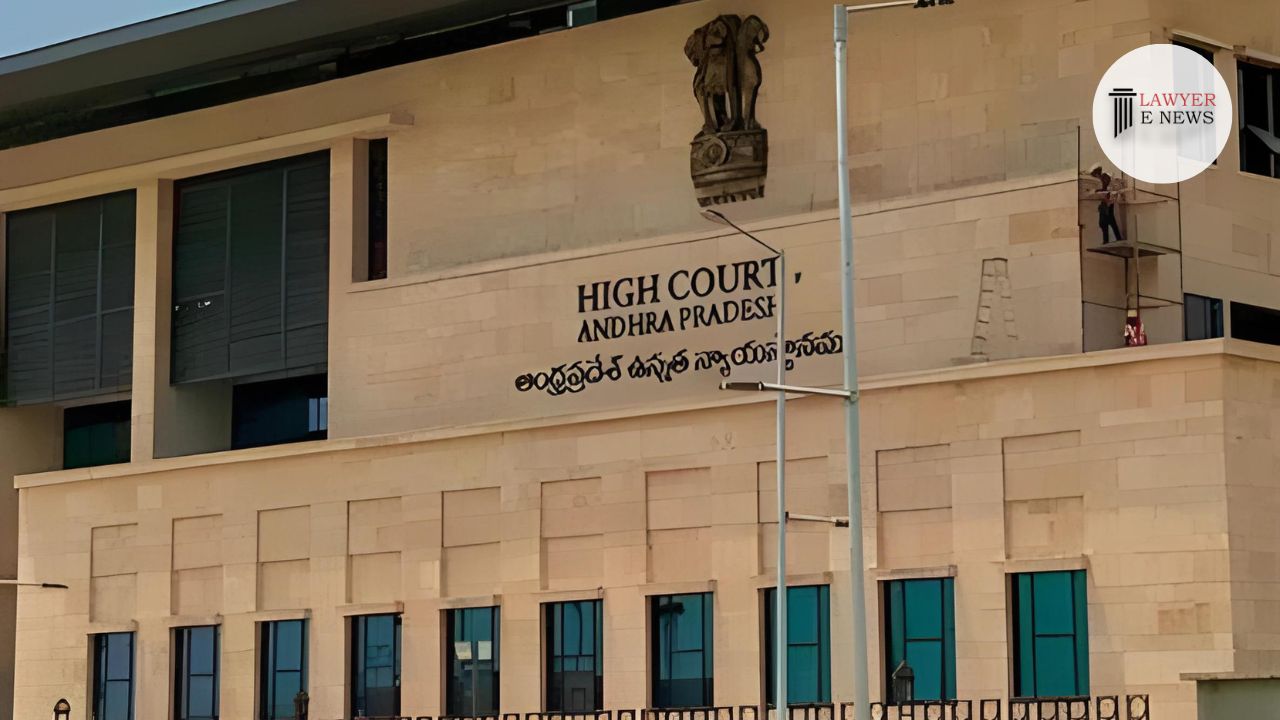-
by sayum
14 February 2026 2:22 PM



Andhra Pradesh High Court dismissed a batch of writ petitions challenging the deduction of Pre-EMIs by banks on housing loans disbursed contrary to the Reserve Bank of India (RBI) Master Circular guidelines. The Court held that the dispute arose out of private and contractual obligations, which are not amenable to writ jurisdiction under Article 226 of the Constitution. The judgment also emphasized that RBI guidelines are directory and do not create enforceable rights for borrowers under public law.
“Writ Jurisdiction Cannot Be Invoked for Private and Contractual Disputes,” Says High Court
In a significant pronouncement, Justice Venkateswarlu Nimmagadda reiterated the limited scope of writ jurisdiction in private disputes involving commercial entities. He observed:
“A private bank engaged in commercial activities cannot be subjected to writ jurisdiction unless it is performing public or statutory duties. Disputes arising out of private contracts, even if regulated by RBI guidelines, do not confer any enforceable rights under Article 226.”
The petitions were filed by homebuyers who had availed housing loans from private banks for under-construction projects. They alleged that the banks violated Clause 7.6 of the RBI Master Circular (dated 01/07/2015), which stipulates that disbursals of housing loans must be linked to the progress of construction. The petitioners claimed that banks had released substantial loan amounts despite the builder's failure to complete construction, leading to undue financial burdens on borrowers.
RBI Guidelines Are Directory, Not Mandatory
The Court clarified the legal nature of RBI circulars, holding that they are intended as guiding principles for banks and not as mandatory provisions enforceable under writ jurisdiction. Referring to precedents, the Court stated:
“RBI circulars primarily serve as policy frameworks for regulated entities. The violation of these guidelines, while requiring regulatory oversight, does not confer a legal right enforceable by borrowers through a writ of mandamus.”
The Court relied on judgments such as Bank of India Finance Ltd. vs. Custodian and Federal Bank Ltd. vs. Sagar Thomas, where the Supreme Court held that non-compliance with RBI circulars does not invalidate underlying contractual obligations.
Alternative Remedies Under Consumer Law and Ombudsman Scheme
The High Court further noted that the petitioners had already approached the National Consumer Disputes Redressal Commission (NCDRC) for relief, seeking refunds and damages from the builder and banks. It emphasized that the petitioners had effective alternative remedies, including the Integrated Ombudsman Scheme, 2021, formulated under Section 35A of the Banking Regulation Act, 1949, and Section 45L of the RBI Act, 1934.
The Court observed:
“When an effective alternative remedy exists, particularly through consumer forums or the RBI Ombudsman Scheme, the invocation of writ jurisdiction is unwarranted. The extraordinary jurisdiction under Article 226 is not a substitute for statutory remedies.”
Banks Not Responsible for Builder Defaults Under Loan Agreements
The Court scrutinized the loan and tripartite agreements executed between the borrowers, the banks, and the builders. It noted that the agreements explicitly exempted banks from liability for delays in construction or possession. Borrowers had also undertaken unconditional repayment obligations, irrespective of the status of construction.
Justice Nimmagadda highlighted that the petitioners were bound by their contractual commitments:
“The Facility Agreement and undertakings executed by the petitioners clearly absolve the banks of liability arising from builder defaults. Borrowers cannot now claim exemption from their repayment obligations.”
Key Observations of the Court
1. RBI Guidelines Are Not Statutory Directions:
The Court held that the Master Circular's provisions, including Clause 7.6, are advisory and directory in nature. Violations of these guidelines do not invalidate underlying contractual obligations.
2. Writ Jurisdiction Limited to Public Duties:
Relying on Federal Bank Ltd. vs. Sagar Thomas and Phoenix ARC Private Ltd. vs. Vishwa Bharati Vidya Mandir, the Court reiterated that private commercial disputes cannot be adjudicated under writ jurisdiction unless statutory or public duties are involved.
3. Alternative Forums Available:
The Court highlighted that borrowers could pursue their grievances before the NCDRC and under the Integrated Ombudsman Scheme, which provides a comprehensive framework for dispute resolution.
4. Borrowers Bound by Contractual Terms:
The Court emphasized that borrowers had agreed to unconditional repayment terms in their loan agreements, including clauses explicitly absolving banks from liability for construction delays.
The writ petitions were dismissed as not maintainable, with liberty granted to the petitioners to pursue alternative remedies. The Court also closed all pending interlocutory applications.
The judgment underscores the limited scope of writ jurisdiction in contractual disputes involving private entities. It reinforces the principle that RBI guidelines serve as regulatory frameworks rather than enforceable rights for borrowers and directs aggrieved parties to pursue statutory remedies under consumer law or banking ombudsman schemes.
Date of Decision: 20/12/2024
